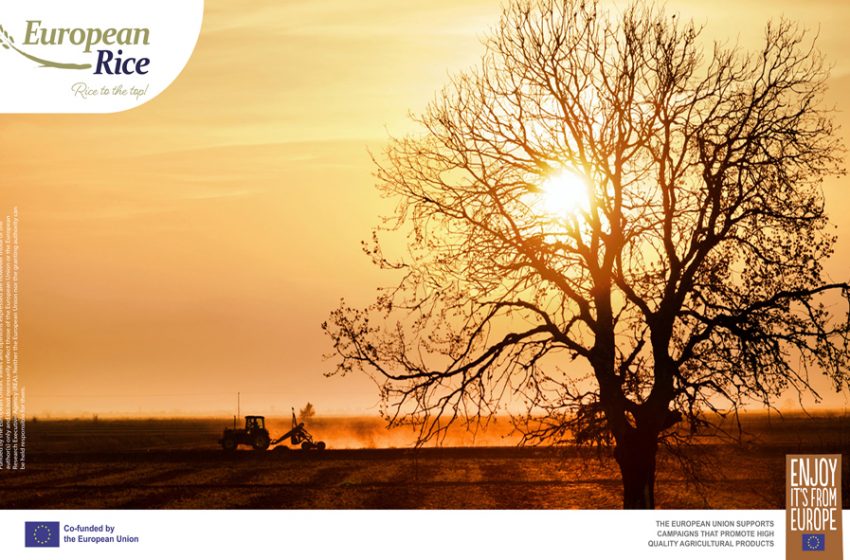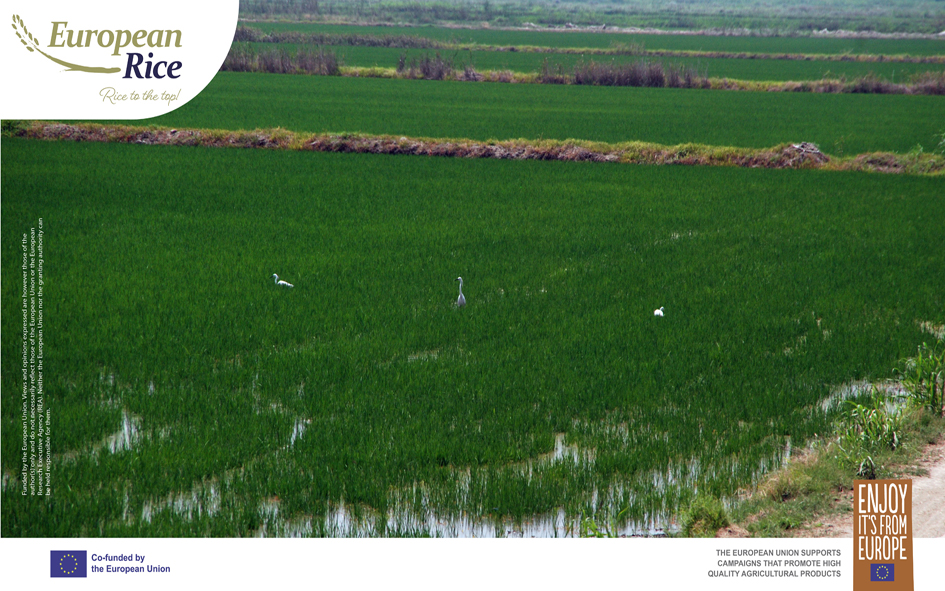Sustainable production methods make European Rice an environmentally friendly choice

Dubai, United Arab Emirates, April 2023
The cultivation of rice requires a substantial amount of water, making it a highly water-intensive crop. Additionally, the use of fertilizers and pesticides in rice paddies poses a threat to the environment.
However, European Rice production in Europe and particular in Greece, within the rivers of Axios, Loudias and Aliakmonas National Park, is a “Natura 2000” protected area and has been recognized as having a positive impact on climate change mitigation. Rice plays an important role in the local agricultural system and provides both economic benefits to small farmers and environmental benefits to the area.
Rice–growing systems in Europe reduce greenhouse gas emissions from agricultural practices by using efficient water management systems, such as alternate wetting and drying irrigation (AWD). This method reduces water use by up to 50%, which reduces methane emissions from paddy fields, a powerful greenhouse gas. Additionally, rice-growing systems store organic matter in the soil which helps increase soil fertility while reducing carbon dioxide levels in the atmosphere.

The existing carbon stores are maintained through careful management of crop residue on fields and their conversion into biochar for fertilizer production, providing additional sources of income for small farmers while helping store carbon. Finally, healthy soils help sequester more carbon due to higher levels of organic matter content. As a result, rice-growing system contributes significantly towards climate change mitigation efforts by reducing emissions from agricultural practices as well as maintaining existing carbon stores and enhancing their sequestration potential.
In order to improve resilience of food production systems, the Greek farmers have adopted measures such as new varieties of rice that are more resilient to climate change; investing in irrigation infrastructure; promoting sustainable water management practices; increasing soil fertility through organic fertilizers; encouraging agroforestry practices; strengthening research activities on pest control strategies; developing early warning systems for extreme weather events; and implementing integrated pest management strategies.
These are some important factors that make European Rice not only sustainable, but also genuine in taste. In addition, European rice is rich in B-complex vitamins, such as Niacin, Thiamine, Riboflavin and Selenium, while the carbohydrates contained in its endosperm constitute an important source of energy for the human organism. Modern scientific studies recommend that a total of 55% of our daily calorie intake must be in the form of carbohydrates. The nutritional value of rice is complemented by the proteins found in it, the contained metal micronutrients.
European Rice is gaining recognition in the industry for its health and sustainable properties, making it a popular choice due to the benefits it provides.






